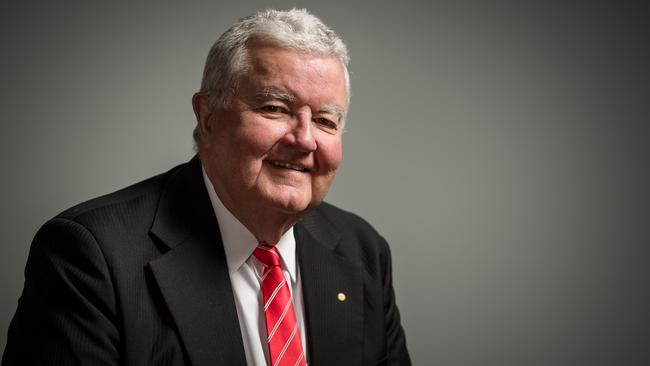Australia’s carbon market faces probe after rort claims
A review into the country’s carbon markets will be held following allegations from a whistleblower that a majority of carbon credits issued by the regulator were flawed.

The whistleblower who made an explosive set of allegations about Australia’s carbon market said a government-sanctioned review of the scheme may result in big industry players lifting the lid on problems in the sector.
Former chief scientist Ian Chubb will lead a review probing the integrity of Australia‘s $4.5bn carbon market after whistleblower Andrew Macintosh described the scheme as a rort.
The review of Australian Carbon Credit Units follows allegations from Mr Macintosh, the former chairman of the Emissions Reduction Assurance Committee, that a majority of carbon credits issued by the Clean Energy Regulator were flawed.
The formal review could lead to a shake-up of the carbon market, Mr Macintosh said.
“A significant number of people in the industry are fully aware that things are broken at the moment,” said Mr Macintosh, an Australian National University policy expert.
“Even though they are beneficiaries of the problems, they know there are issues and there’s discussion amongst some of them about making it clear that they’re aware of problems.
“There’s a lot of them that are afraid of the regulator. Hopefully this process will give people a forum where they can raise things without fear of retribution.”
Mr Macintosh published an extensive series of problems with the Emissions Reduction Fund which is run by the regulator. It directly contracts for the purchase of ACCUs from carbon offset schemes such as revegetation on pastoral properties, energy efficiency projects run by big energy users, and promises by farmers to end or avoid land clearing.
Mr Macintosh alleged “proponents are being issued ACCUs for growing trees that were already there when the projects started”, among other charges, and called for an independent investigation to explore the CER’s administration and the broader suitability of the ERF. The CER said at the time it stood by the fund, describing it as “a robust offsets scheme with a high degree of integrity” and that complaints about several carbon methods were unfounded. It said the human-induced regeneration method – which allows landholders to earn ACCUs for regenerating native forests by changing land management practices – has high integrity standards, while forest cover goals have been positive in NSW and Queensland and are exceeding expectations.
Before the election, now-Energy Minister Chris Bowen vowed to launch a review, while the CER and former minister Angus Taylor defended the scheme.
Professor Chubb will lead a panel including four yet-to-be-appointed experts to advise the government on how Australia can realise the full potential of the ACCU system covering governance arrangements and legislative requirements, the integrity of the key methods used and the broader scheme settings that affect the integrity of carbon credits. “The government wants to make sure it remains a strong and credible scheme supported by participants, purchasers and the broader community. The review will achieve that goal,” Mr Bowen said.
The review will run for six months, with recommendations due by December 31.
It will investigate if the methods by which ACCUs are generated meet offset integrity standards, including recent claims raised about human-induced regeneration which allows landholders to earn credits for regenerating native forests by changing land management practices. Other areas will be carbon capture and storage, avoided deforestation, and landfill waste gas methods.
The Morrison government made a major change to the carbon offsets market in March after allowing owners of land based schemes the right to sell ACCUs on the open market rather than at lower prices to the Commonwealth. As a result the price of ACCU’s crashed by more than a third given market fears of an oversupply of the carbon units over the next few years. Prices have recovered by about a quarter and are trading at $35 per tonne.


To join the conversation, please log in. Don't have an account? Register
Join the conversation, you are commenting as Logout